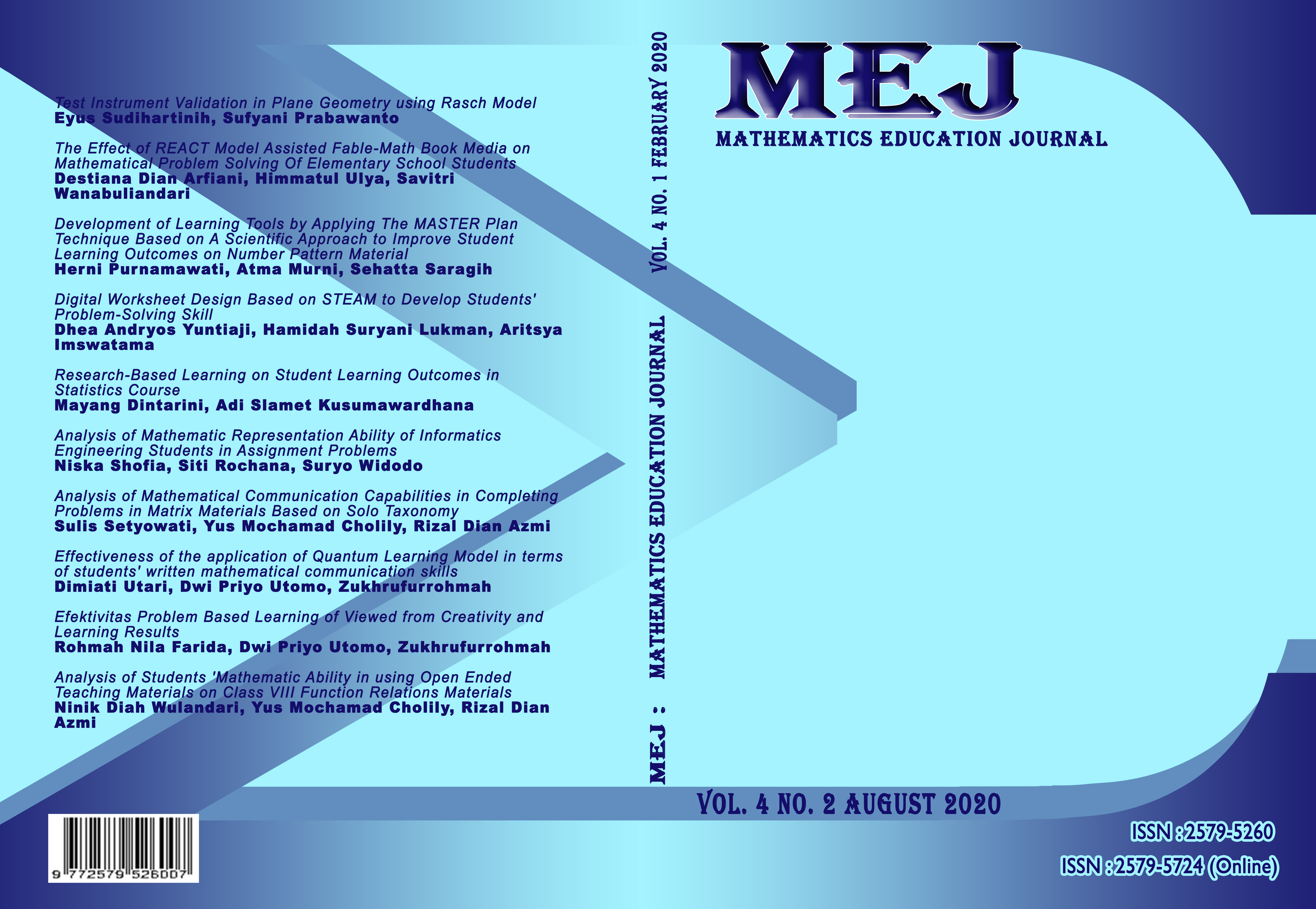Research Based Learning on Student Learning Outcomes in Statistics Course
DOI:
https://doi.org/10.22219/mej.v4i2.12334Keywords:
Research Based Learning, Learning OutcomesAbstract
This study aims to describe the application of research-based learning in statistics courses, and determine its effectiveness on student learning outcomes in statistics. This research was an experimental research with a qualitative quantitative approach. The research design used posttest only design, where there were two classes studied, one experimental class and one control class. The population and sample of this research were University of Muhammadiyah Malang students who were taking Statistics courses. The experimental class was given treatment research-based learning, while the control class was given conventional learning. Then both classes were given a posttest to find out the learning outcomes. Analysis of research data using independent sample T-Test. The effectiveness of the application of Research-Based Learning can be seen by comparing the average final work of experimental and control class students. Based on the data processing with SPSS, the average of the experimental group was better than the control group and showed that Research-based Learning had an impact on the average final grades of experimental class students so that it becomes better than the average control class students.
Downloads
References
Abdullah, A. A., & Suhartini. (2017). Meningkatkan Kemampuan Berpikir Kritis Melalui Pembelajaran Statistika Berbasis Pendidikan Politik Di Lingkungan Sekolah, II(1), 1–10. Charitas, R., Prahmana, I., & Kusumah, Y. S. (2016). Keterampilan Mahasiswa Dalam Melakukan Penelitian Pendidikan Matematika Melalui Pembelajaran Berbasis Riset, 9(1), 1–14. Fitri, A. (2011). Problem Based Learning. Jurnal PP, 1(2), 159–165. Parma, & Saparwadi, L. (2015). Pengembangan Model Pembelajaran Kalkulus Berbantuan Komputer Melalui Program Maple Di Program Studi Pendidikan Matematika. Jurnal Elemen, 1(1), 37–48.
Downloads
Published
Issue
Section
License
Authors who publish with MEJ (Mathematics Education Journal) agree to the following terms:
For all articles published in MEJ, copyright is retained by the authors. Authors give permission to the publisher to announce the work with conditions. When the manuscript is accepted for publication, the authors agree to automatic transfer of the publishing right to the publisher.
Authors retain copyright and grant the journal right of first publication with the work simultaneously licensed under a Creative Commons Attribution-ShareAlike 4.0 International License that allows others to share the work with an acknowledgment of the work's authorship and initial publication in this journal.
Authors are able to enter into separate, additional contractual arrangements for the non-exclusive distribution of the journal's published version of the work (e.g., post it to an institutional repository or publish it in a book), with an acknowledgment of its initial publication in this journal.
Authors are permitted and encouraged to post their work online (e.g., in institutional repositories or on their website) prior to and during the submission process, as it can lead to productive exchanges, as well as earlier and greater citation of published work (See The Effect of Open Access).

This work is licensed under a Creative Commons Attribution-ShareAlike 4.0 International License.










